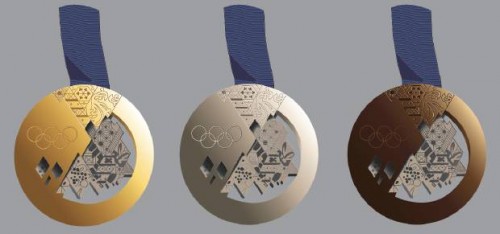A Beijing Olympic Gold Medal for $37,500?

Each one of these Beijing gold medals contains 550 grams of silver and 6 grams of gold. The silver medals, on the other hand, consist of 550 grams of silver and a melt value of just beneath $450. Meanwhile, the bronze medals contain a mix of copper, zinc, and tin. Their melt value counts over $5.
While these metal values may not seem that significant, winning medals comes with cash prizes for US athletes. But, do you know how much these Olympic athletes make for medals and how pricey is the tax bill?
How much do U.S. athletes get paid for winning a medal?
For the U.S. athletes, winning a gold medal at the 2022 Winter Olympics brings a cash reward along with the medal. The U.S. Olympic Commission ensures to reward the medalists with a $37,500 bonus for gold, $22,500 for silver, and $15,000 for a bronze medal.
It is a pretty nice bonus, still nowhere near what some other countries offer. Singapore provides a bonus worth of $740,000 for a gold medal while Italian athletes can get more than $213,000.
Do they have to pay tax on cash prizes?
Earlier athletes who won gold, silver, or bronze had to pay a part of their winning to Uncle Sam. It was until 2016, that the United States Appreciation for Olympians and Paralympians Act passed. This act freed athletes from paying taxes on the values of their medals and the cash prizes.
However, the act excluded those athletes who earn over one million a year, such as Shaun White. This made it mandatory for such athletes to pay taxes on their medal bonus and value. Also, athletes still need to pay taxes for the prizes which they win in competitions other than Olympics.
Who pays the Olympic expenses for these athletes?
The Olympic expenses for these athletes are paid by the U.S. Olympic Committee. It carries each competitor’s meals, lodging, and transportation. This way, the committee makes sure that the participants don’t have to worry about anything other than their performance.
How do Olympic athletes make money by winning?

Of course, not only the cash bonus on won medals makes up for their earnings. After returning home, athletes get tons of other opportunities that help them make money. They get offers for endorsement and advertisements. For example, Shawn White has made multi-million-dollar endorsement agreements with Burton, Kraft, and Red Bull. These help him to earn $10 million annually.
Athletes can also sell their medals. Depending on the reputation of the athlete and when they sold the medal, these medals can cost huge amounts. For instance, Jesse Owens’ sold his 1936 gold medal for a lovely sum of $1.47 million in 2013.
The wrap-up
Olympic athletes train for years to reach the top of their profession i.e. participating in the Olympics. Fortunately, they don’t have to pay taxes on their winnings anymore. Additionally, very few of these athletes manage to create a secure financial future.




